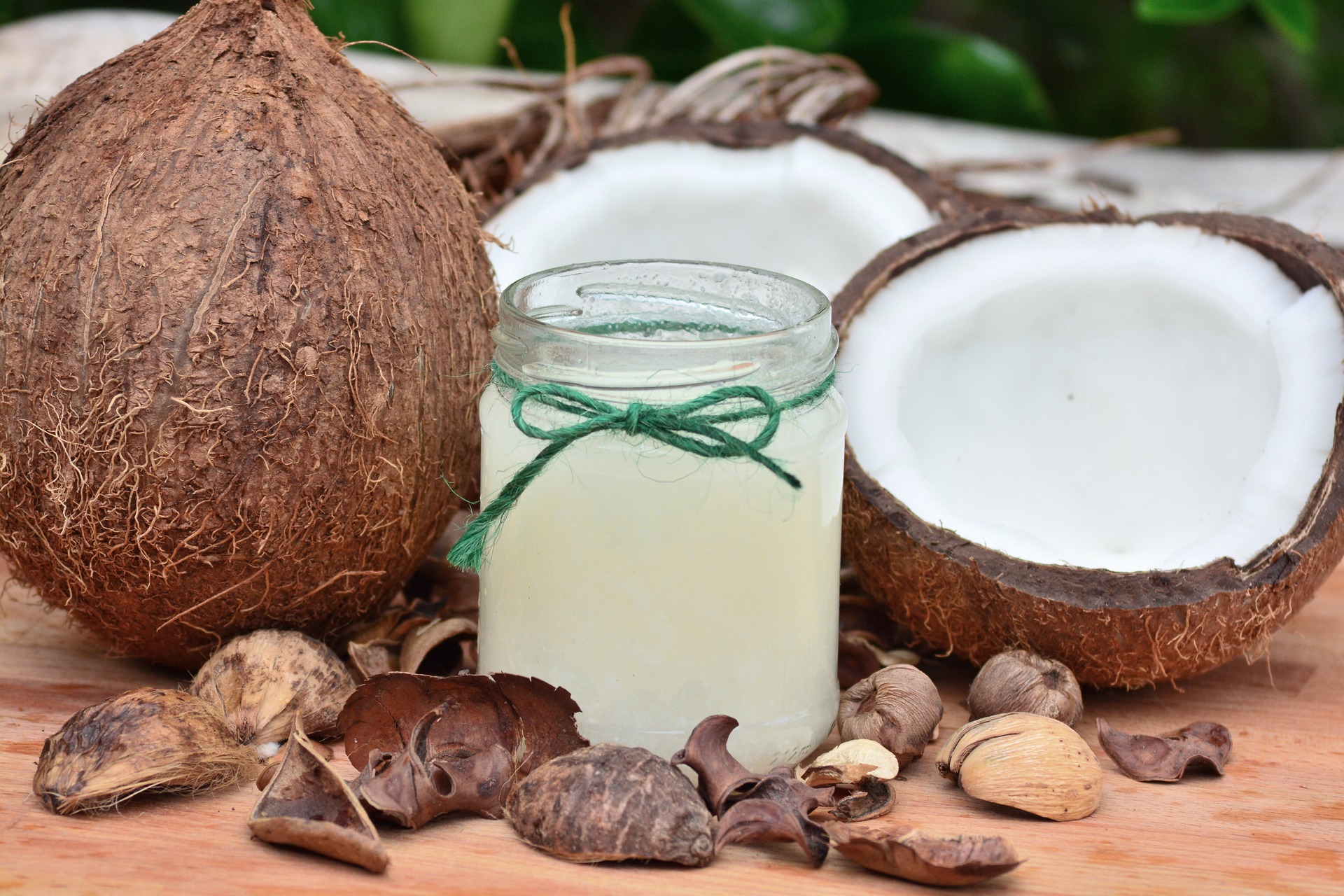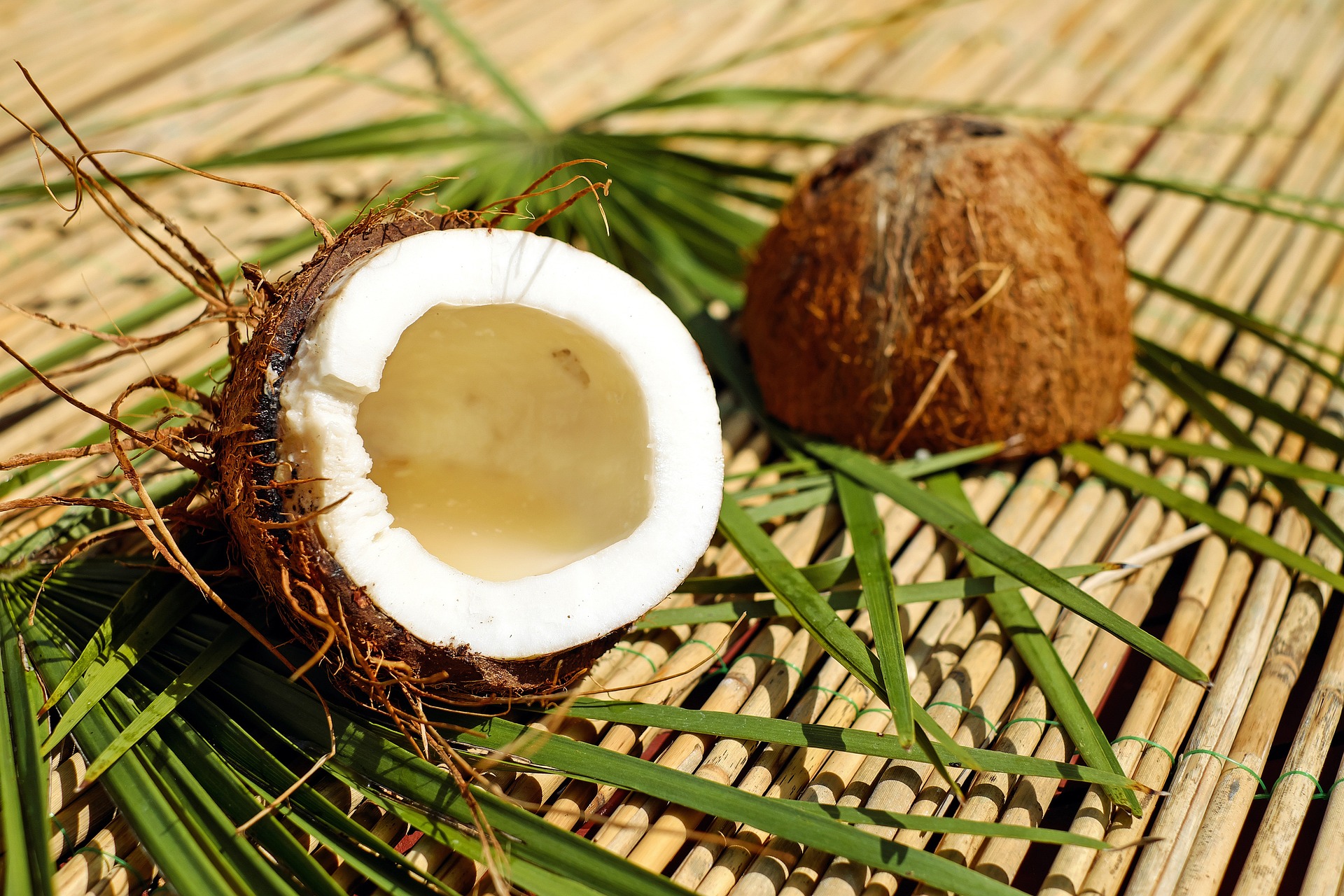Coconut: The Tropical Treasure Packed with Flavor and Health Benefits

Coconut is a versatile fruit that has been celebrated for centuries for its unique taste, aroma, and numerous health benefits. From its sweet and refreshing water to its rich and creamy flesh, every part of the coconut offers culinary delights and nutritional value. In this article, we will explore the nutritional profile of coconut, its potential health benefits, and creative ways to incorporate this tropical treasure into your diet. Get ready to discover why coconut is not only a delightful addition to your meals but also a source of nourishment and well-being!
Introduction to Coconut: The Tropical Treasure Packed with Flavor and Health Benefits
Coconut, scientifically known as Cocos nucifera, is a tropical fruit that grows on the coconut palm tree. It is a staple in the cuisines of many tropical regions, and its versatility extends far beyond its delicious flavor. Coconut is cherished for its nourishing properties and is used in various forms, including coconut water, milk, oil, and grated flesh.
Nutritional Value of Coconut: The Tropical Treasure Packed with Flavor and Health Benefits
Coconut is nutrient-dense and offers a unique combination of essential nutrients. While the nutrient content may vary slightly depending on the form, here is a general overview of the nutritional value of coconut:
– Calories: Approximately 354 calories per 100 grams (mainly from healthy fats)
– Total Fat: Approximately 33 grams per 100 grams, consisting mainly of saturated fats
– Carbohydrates: Approximately 15 grams per 100 grams, including dietary fiber and natural sugars
– Protein: Approximately 3 grams per 100 grams
– Vitamins: Coconut is a good source of vitamin C, vitamin E, vitamin B6, and several B vitamins.
– Minerals: Coconut contains essential minerals such as iron, magnesium, potassium, and manganese.
Health Benefits of Coconut: The Tropical Treasure Packed with Flavor and Health Benefits
Abundance of Healthy Fats
Coconut is rich in healthy fats, particularly saturated fats. While saturated fats have been controversial in the past, the type of saturated fats in coconut, known as medium-chain triglycerides (MCTs), have unique health benefits. MCTs are easily absorbed by the body and quickly metabolized for energy. They are less likely to be stored as fat compared to long-chain triglycerides (LCTs), making coconut a valuable source of energy.
Rich Source of Essential Minerals
Coconut is abundant in essential minerals that support various bodily functions. Potassium, an electrolyte, helps maintain proper hydration and balance of body fluids. Magnesium plays a role in muscle function, nerve health, and bone strength. Iron is essential for oxygen transport and energy production in the body, while manganese contributes to antioxidant defenses and bone health.
Antioxidant Properties
Coconut contains antioxidants that help protect the body against oxidative stress and damage caused by free radicals. Antioxidants, such as vitamin C and phenolic compounds, help neutralize harmful free radicals and reduce inflammation, potentially reducing the risk of chronic diseases.
Promotes Heart Health
Contrary to popular belief, coconut can be part of a heart-healthy diet. While it is high in saturated fats, the predominant saturated fat in coconut is lauric acid, which may raise beneficial HDL cholesterol levels. Additionally, coconut contains fiber, vitamins, and minerals that contribute to overall cardiovascular health.
Potential Anti-inflammatory Effects
Certain compounds found in coconut, such as polyphenols and medium-chain fatty acids, have demonstrated anti-inflammatory properties in preliminary studies. These properties may help reduce inflammation in the body and potentially benefit conditions such as arthritis and inflammatory bowel diseases.
Creative Ways to Enjoy Coconut: The Tropical Treasure Packed with Flavor and Health Benefits
Coconut can be enjoyed in various forms, each offering a unique flavor and texture. Here are some creative ways to incorporate coconut into your diet:
Fresh Coconut Water
Hydrate naturally with fresh coconut water straight from the coconut. The refreshing and electrolyte-rich liquid is perfect for quenching thirst after physical activity or as a healthy beverage option on a hot day.
Coconut Milk and Cream
Coconut milk and cream are versatile ingredients that add richness and flavor to both sweet and savory dishes. Use coconut milk as a base for curries, soups, smoothies, and desserts. Coconut cream can be whipped for dairy-free alternatives to whipped cream or used in creamy sauces and desserts.
Coconut Oil in Cooking and Baking
Coconut oil is a popular cooking oil due to its high smoke point and distinct flavor. It can be used for sautéing, roasting, and stir-frying. Additionally, coconut oil is a popular choice for baking, providing moisture and a subtle coconut taste to cakes, cookies, and bread.
Toasted Coconut Flakes
Toasted coconut flakes add a delightful crunch and aroma to dishes. Sprinkle them over salads, yogurt, oatmeal, or desserts for added texture and a hint of tropical sweetness.
Coconut Flour and Coconut Sugar
Coconut flour, made from dried and ground coconut meat, is a gluten-free and high-fiber alternative to traditional flours. It is commonly used in grain-free baking and as a coating for frying. Coconut sugar, derived from the sap of coconut palm trees, is a natural sweetener with a caramel-like flavor. It can be used as a healthier substitute for refined sugars in various recipes.
Incorporating Coconut Into Your Diet
Recipes
Here are a few recipes that incorporate coconut:
– Coconut Curry with Vegetables and Tofu: Prepare a fragrant coconut curry by sautéing onions, garlic, and ginger in coconut oil. Add your choice of vegetables, tofu, and a mixture of coconut milk, curry paste, and spices. Simmer until the flavors meld together and serve with rice or noodles.
– Coconut Chia Pudding: Combine coconut milk, chia seeds, and a sweetener of your choice in a jar. Stir well and refrigerate overnight. In the morning, top with fresh fruits, nuts, or shredded coconut for a creamy and nutritious breakfast.
– Coconut and Lime Energy Balls: Blend dates, shredded coconut, almonds, lime zest, and a touch of coconut oil in a food processor. Roll the mixture into bite-sized balls and refrigerate until firm. These energy balls make for a delicious and healthy snack on the go.
Meal Ideas
Here are a few meal ideas that incorporate coconut:
– Coconut Shrimp Stir-Fry: Sauté shrimp, bell peppers, snap peas, and sliced carrots in coconut oil. Add a splash of coconut milk, soy sauce, and a pinch of red pepper flakes for a flavorful and quick stir-fry. Serve over rice or noodles.
– Coconut-Crusted Chicken: Dip chicken breasts in beaten egg and then coat them with a mixture of shredded coconut and breadcrumbs. Bake until golden and crispy for a tropical twist on traditional chicken.
– Coconut Quinoa Salad: Combine cooked quinoa with diced mango, cucumber, red onion, and toasted coconut flakes. Toss with a dressing made from lime juice, coconut milk, and a touch of honey for a refreshing and satisfying salad.
Conclusion
Coconut is more than just a tasty fruit; it is a tropical treasure packed with flavor and health benefits. From its unique composition of healthy fats and essential minerals to its potential antioxidant and anti-inflammatory properties, coconut offers a range of advantages for your well-being. By incorporating coconut into your diet through various forms and creative recipes, you can savor its delicious taste while reaping its nutritional rewards.
FAQs
Q1: Is coconut considered a nut?
No, despite its name, coconut is not a nut. It is classified as a fruit, specifically a drupe, which is a type of fruit with a hard outer shell and a fleshy interior.
Q2: Is coconut water a good source of hydration?
Yes, coconut water is an excellent natural source of hydration. It is rich in electrolytes like potassium and magnesium, making it a refreshing and replenishing beverage choice.
Q3: Is coconut oil healthy?
Coconut oil is a debated topic in the nutrition community. While it is high in saturated fats, it also contains unique medium-chain triglycerides (MCTs) that offer potential health benefits. Moderation and balance are key when incorporating coconut oil into a well-rounded diet.
Q4: Can coconut be part of a weight loss diet?
Coconut, in moderation, can be part of a balanced weight loss diet. While it is calorie-dense, the MCTs in coconut oil may support satiety and help manage appetite.
Q5: Are there any potential allergenic reactions to coconut?
While coconut allergies are relatively rare, they can occur. If you have known allergies to coconuts or other tree nuts, it is best to avoid coconut and consult with a healthcare professional if needed.






